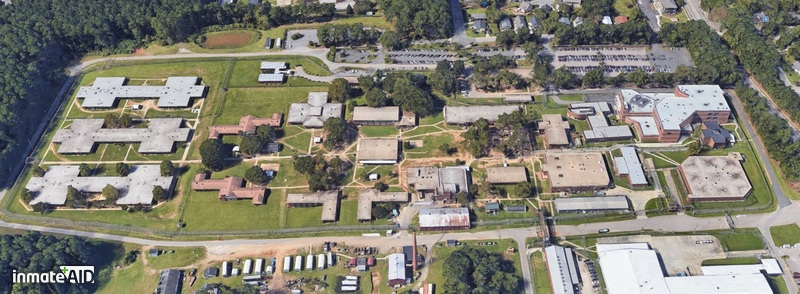Thank you for trying AMP!
You got lucky! We have no ad to show to you!
Connect with an Inmate
NCDPS - NC Correctional Institution for Women (NCCIW)
State Prison
NCCIW is for State Prison offenders sentenced anywhere from one year to life by the State Court in the county where the charges were filed
All prisons and jails have Security or Custody levels depending on the inmate’s classification, sentence, and criminal history. Please review the rules and regulations for State - medium facility.
The phone carrier is Global Tel Link (GTL) - ConnectNetwork, to see their rates and best-calling plans for your inmate to call you.
If you are unsure of your inmate's location, you can search and locate your inmate by typing in their last name, first name or first initial, and/or the offender ID number to get their accurate information immediately Registered Offenders
You can support your loved ones at NCCIW on InmateAid, if you have any immediate questions contact the facility directly at 919-733-4340.
Located at 1034 Bragg St in Raleigh, NC, NCCIW carefully assigns inmates based on their custody level, considering factors like criminal history. NCCIW offers diverse educational and vocational programs aimed at equipping offenders for successful reintegration into society and reducing recidivism. Through these initiatives, inmates gain skills and confidence, fostering personal growth and resilience.
When someone you care about ends up in a state prison, it can be tough to navigate the ins and outs of the system. From figuring out how to stay in touch to understanding what you can do to make their time easier, it can feel overwhelming. That's where this webpage comes in handy. It's here to help you get the lowdown on NCDPS - NC Correctional Institution for Women (NCCIW) so you can stay connected and support your loved one during their time inside.
Communication is important, the prison offers a phone program for outbound calls only, with inmates unable to receive incoming calls. Accepting collect calls can be expensive, sometimes exceeding $10 per call. Click here for discounts on inmate calls, especially if the communication with your inmate is frequent. It's important to remember that all phone calls are recorded, and discussing sensitive legal matters over these lines is discouraged.
While incarcerated, reading is often the best use of time. Please note that books and magazines, puzzles, and word searches ordered for inmates must come directly from the publisher. This policy ensures that the items are new, untampered, and comply with the facility's regulations. Prisons and jails enforce this rule to prevent the introduction of contraband or prohibited materials. By restricting orders to publishers, the facility can better maintain security and control over the content entering the institution. Any books or magazines not received directly from the publisher will be rejected and not delivered to the inmate. You may, however, send letters and selfies to inmates with this easy-to-use app, packages starting at only $8.00.
The NCCIW in Wake County serves as the state's primary correctional facility for women, accommodating the largest inmate population and providing support for other female prisons. Situated on 30 acres of a 190-acre tract in southeast Raleigh, NCCIW operates as a campus-style facility.
With a current capacity of 1,288 inmates, NCCIW houses female offenders of all custody levels and control statuses, including death row, maximum, close, medium, minimum, and safekeepers. It functions as an intake facility for women entering the prison system, where they undergo diagnostic evaluations determining their future prison assignments.
The facility offers a variety of programs aimed at rehabilitation and skill-building, including Correction Enterprises initiatives like the license tag plant and the duplicating and quick copy plant. Inmates can engage in vocational training such as office technology, cosmetology, horticulture, and culinary arts. Educational opportunities include GED preparation and high school equivalency testing. Additionally, programs like Mothers and Their Children (MATCH) and Drug Alcohol Recovery Treatment (DART) address specific needs among the inmate population.
Religious services and activities are available to prisoners, with worship services held in the Chapel of the Nameless Woman and Bible studies facilitated by chaplains and volunteers from organizations like Prison Fellowship.
The history of NCCIW dates back to its origins as a road camp for male inmates in the 1930s. In 1933, women inmates were transferred to the Bragg Street site while renovations were underway at Central Prison. Over the years, the facility underwent significant developments and changes in management. In 1942, Edna B. Strickland became the first female superintendent, and in 1996, Carol Caldwell became the first female warden.
The prison underwent multiple construction and renovation phases, with improvements made in the late 1940s and early 1950s to expand its facilities. A major construction initiative began in 1986, resulting in the addition of dormitories, an infirmary, and other support buildings. In the 1990s, further expansions were funded to accommodate the growing inmate population and enhance infrastructure.
Despite occasional challenges such as a riot in 1975, NCCIW has continued to evolve and adapt to meet the changing needs of its inmate population. Today, it remains a vital component of North Carolina's correctional system, providing essential services and programs for female offenders across the state.









